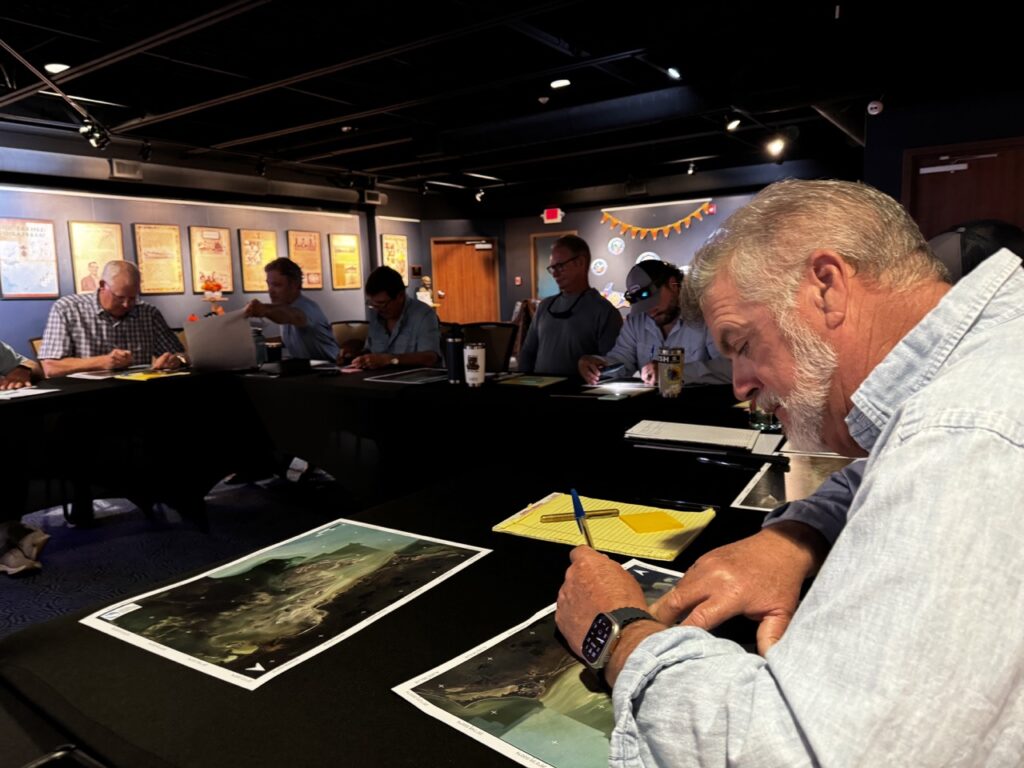Findings from new Bonefish & Tarpon Trust research mirror the observations of guides and anglers in the Florida Keys: the number of angler-shark interactions is increasing, which may have negative impacts on the fish populations and the fisheries they support. Whether it is sharks taking a hooked fish (depredation) or one that has just been released (post-release predation), anglers and guides in the Keys are growing increasingly frustrated by sharks while fishing. BTT’s data indicates that anglers are losing fish to sharks at rates that exceed earlier reports.
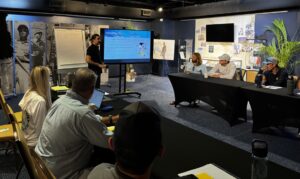
Postdoctoral Associate leading Shark Depredation Project, presents workshop goals to Florida Keys guides.
BTT launched the Florida Keys Shark Depredation Project in the fall of 2024, beginning with a survey among anglers who fish inshore in areas from Biscayne Bay south to Key West and west to Florida Bay and the Everglades. Following up on that survey, BTT researchers recently conducted a workshop with Keys fishing guides to pinpoint on the map which areas see the most shark-angler interactions.
Initial findings show a steady increase in depredation pressure over the past 10 years, with a marked inflection point around 2014-2015, when rates began to rise sharply. At present, snook and red drum are the flats fish species depredated most. Lemon sharks are responsible for the most depredations. These findings, together with the high-depredation locations provided by guides, will inform the next phase of the project: BTT researchers working in the field to study shark behavior, diet, and movement to get a better handle on what has caused the increase in shark-angler interactions.
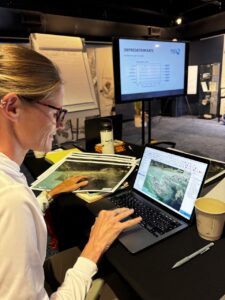
The goal of BTT’s Shark Depredation Project is to identify ways for sharks and anglers to coexist within a healthy flats fishery. BTT can then work with resource managers and anglers to deploy these science-backed solutions to mitigate shark depredation in the Keys. BTT is also looking at this issue beyond the Keys, including its support for the SHARKED Act, a bill that would create a task force of experts to address the depredation problem nationwide.
We are enormously thankful to the anglers and guides who have participated in this project. Your knowledge and willingness to invest time and effort into improving the resource is essential to BTT’s scientific approach to conservation. Please stay tuned for further updates!
